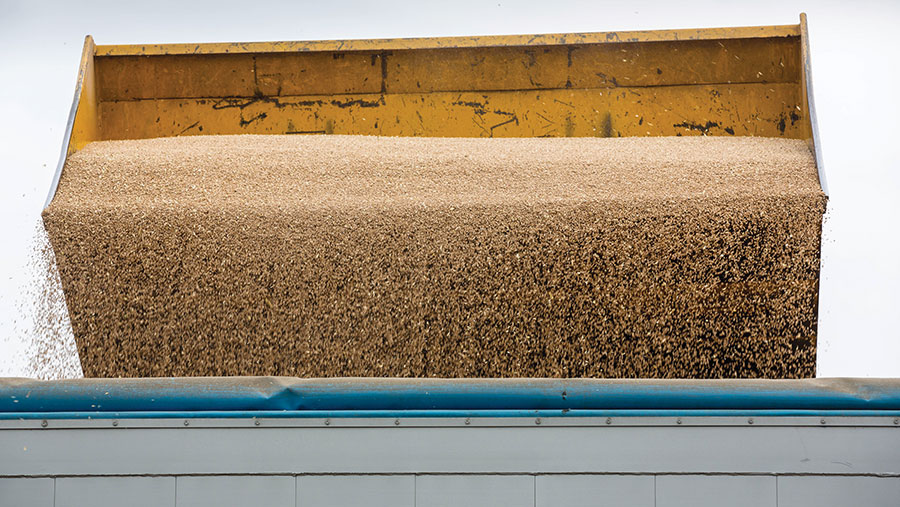Editor’s view: Diversity of buyers is a public good
 © Tim Scrivener
© Tim Scrivener What a odd assortment of companies the firms that buy the bulk of UK grain are.
Run a finger down the column of names in this week’s markets story on profitability in the sector and you see everything from the long arm of the Chinese state (Cofco) to farmer co-ops (including Openfield and United Oilseeds) and privately owned companies.
Sitting at the top of the tree is Frontier, itself a joint venture between Associated British Foods (owner of British Sugar and Primark) and Cargill, the world’s biggest grain trading company.
See also: Editor’s view: Three choices for Welsh on tree targets
Farmers of a certain vintage will find it particularly notable that despite the diversity there are still a much lower number of buyers than there used to be.
Food producers are not the only segment of agriculture to have faced significant pressure to consolidate in recent decades, every part of the supply chain has been squeezed.
Some, like Alexander Inglis & Son, fail outright, leaving a trail of out-of-pocket farmers in their wake, while others are swallowed up by the bigger fish.
Notable acquisitions in recent years include Gleadell Agriculture – purchased outright by Archer-Daniels-Midland Company (ADM) in 2019 – and this year’s swallowing up of Viterra (previously known as Glencore Agriculture) by global giant Bunge.
The latter move was referred to by the Financial Times as the biggest reshaping of the top tier of agricultural commodities since 1999 and is yet to be fully approved by competition regulators around the world.
Experts believe just five companies control about half of the world’s internationally traded grain and oilseeds, which means an astonishingly large number of mouths are reliant for their daily bread on a tiny number of organisations.
What should a farmer make of this – indeed, is it even worth spending time thinking about?
These firms would mostly prefer you thought of them as little as possible, opting to hide behind the more visible food manufacturers they supply.
And they probably spend very little time thinking about us, given that the UK is a minnow in terms of the amount it produces.
Like the supermarkets, they would say that despite their seemingly large profits in some years they operate on wafer-thin margins (2-3% of turnover seems common) and that scale is needed, as well as tackling huge risks such as getting grain out of Ukraine in the teeth of Russian aggression.
But just because there is an enormous imbalance in scale between them and us does not mean there is nothing we can do.
Due diligence
Farmers should not blithely trade with whoever they did last year without any due diligence.
They can support diversity by shopping around and reduce risk by selling to multiple destinations – where appropriate – with help from data such as the aforementioned table (compiled with the kind help of market expert Richard Whitlock) to judge who is a lower-risk buyer.
They can support businesses where farmers still have a stake in its operation.
In this week’s Letters we see Richard Butterworth calling on fellow farmers to oppose the loss of a farming co-op in another sector – feed manufacturing – in a forthcoming vote that could see it change to a limited company.
And the government has a role to play as well, of course. Whatever the outcome, it was pleasing this week to see the Competition and Markets Authority (CMA) thoroughly investigating ABP’s acquisition of two sites from Scotbeef.
The government can’t hold back the tide of consolidation it its entirety, nor should it, but a muscular CMA is a public good.

